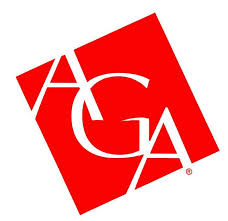Is the AGA Throwing American Gamblers Under the Bus?

The American Gaming Association (AGA) recently lauded President Trump’s sweeping “Big Beautiful Bill” (the One Big Beautiful Bill Act, OBBBA), hailing it as a boon for economic competitiveness and job creation.
Yet beneath the celebration lies a little-noticed provision that could fundamentally alter — and undermine — the financial prospects of everyday bettors.
As professional and casual gamblers brace for a stealth tax on play, questions arise: is the AGA sincerely championing consumer interests, or strategically currying favor with the administration to avoid regulatory backlash?
And is this tactic worth the price paid by America’s wagering public?
Play in the best Online Casinos
Just click on the images to register. You can find a full casino list here.
The Real “Big Beautiful Bill” for Casinos
Passed by the House on July 2, 2025, the OBBBA includes an amendment capping deductible gambling losses at 90 percent of documented losses against winnings, effectively creating a new tax on play for every American gambler who documents their activity.
Under prior law, players could fully offset losses — dollar-for-dollar — against winnings, so only net profits were taxable. The 10% non-deductible “phantom” losses translate into phantom income: a bettor who breaks even on paper would now owe taxes on money they never realized.
For example, a player winning $100,000 and losing $100,000 under previous rules paid tax only on net zero. Under the new provision, that same bettor faces taxation on $10,000 of “income” they never actually kept — an unwarranted windfall for the Treasury, estimated in the tens of millions annually.
Consequences for Players and the Industry
Professional sharps—players who break even or profit marginally over high volume—stand to suffer most. Their razor-thin margins depend on full loss write-offs. A 10% reclassification could erode profitability, pushing some out of the regulated market entirely.
In turn, casinos benefit: diminished “sharps” often means fewer skilled bettors who provide market liquidity. On the other hand, there might be an increase in casual gamblers more likely to tilt house-ward.
Occasional players also face harm. Those who “play for fun” but occasionally report balanced books will now suddenly see tax bills. This will be souring recreational experiences and potentially driving them to underground or offshore sites to avoid phantom tax traps.
Ironically, these outcomes further casino bottom lines while boosting federal receipts — without any overt tax rate hikes — by taxing unrealized gains.
That hidden windfall aligns casino and Treasury interests, even as it penalizes America’s gamblers.
Why the AGA Is Celebrating
Today, the AGA released a statement praising the OBBBA’s tax policies for “supporting consumers, encouraging business innovation and investment, and strengthening competitiveness”.
By emphasizing job creation and economic growth, the AGA positioned itself squarely on the administration’s good side — potentially safeguarding its access to policymakers and regulatory levers.
But while trumpeting headline-grabbing benefits, the AGA conspicuously omitted any substantive engagement with the contentious loss-deductibility cap.
To consumer advocates, this silence speaks volumes: the AGA is busy celebrating a measure that disproportionately harms players, with little to no compensation for those at risk.
Strategic Spin or Sincere Support?
Some industry insiders argue the AGA’s praise is purely strategic. The Trump administration has signaled an intolerance for high-profile dissent: from universities under threat of funding cuts to media outlets facing defamation lawsuits.
In such an environment, the AGA may have judged that public enmity risks harsher oversight, regulatory investigations, or punitive executive actions.
Is this a wise gamble? On one hand, playing along may preserve AGA’s influence in Washington and stave off adversarial legislation specifically targeting gaming.
On the other, it risks alienating the gambling community. At the end of the day, the very constituency the AGA claims to represent. This could erode trust, reduce membership engagement, and spur grassroots backlash or legal challenges.
Other Institutions That Have “Bowed”
This pattern of institutional acquiescence is not unique to the AGA:
- Columbia University conceded to a series of Trump administration demands—restructuring departments and increasing campus policing—in order to restore $400 million in federal research funding, a move criticized by faculty as undermining academic autonomy.
- University of Virginia President James Ryan resigned under federal scrutiny over the school’s diversity and inclusion policies, reflecting the administration’s willingness to pressure higher-ed leaders through investigations and funding threats.
- CBS News (Paramount) agreed to a $16 million settlement with President Trump over a “60 Minutes” interview editing dispute—without formal apology—in part to secure regulatory approval for a major merger, prompting internal resignations and condemnations of journalistic compromise.
These examples illustrate a broader trend. Organizations capitulate to avoid punitive action. But often, they find that concessions only invite further demands or damage reputations without guaranteeing long-term security.
Is the Strategy a Winning Hand?
For the AGA, the calculus is complex. Short-term, aligning with the Trump administration may maintain political capital and deter draconian policies directly targeting gaming.
Long-term, however, it risks undermining credibility among players, generating negative publicity, and fueling unregulated or offshore alternatives.
A more balanced approach could protect both the industry and its customers. By failing to do so, the AGA may have thrown American gamblers under the bus in pursuit of political expediency.
The Bottom Line: The AGA’s plaudits for the “Big Beautiful Bill” mask the hidden tax trap awaiting every documented gambler in America.
Whether this reflects genuine policy support or savvy political maneuvering, it leaves players footing an extra, unwarranted tax bill. In the game of politics, the AGA may feel it’s playing it safe—but the real losers appear to be America’s gamblers.
More Selected News for You
You must be logged in to post a comment.




